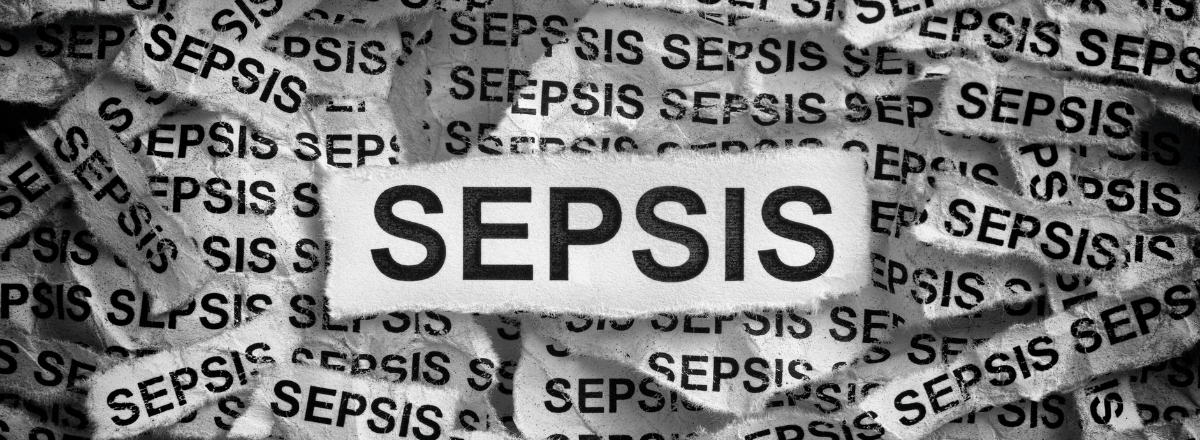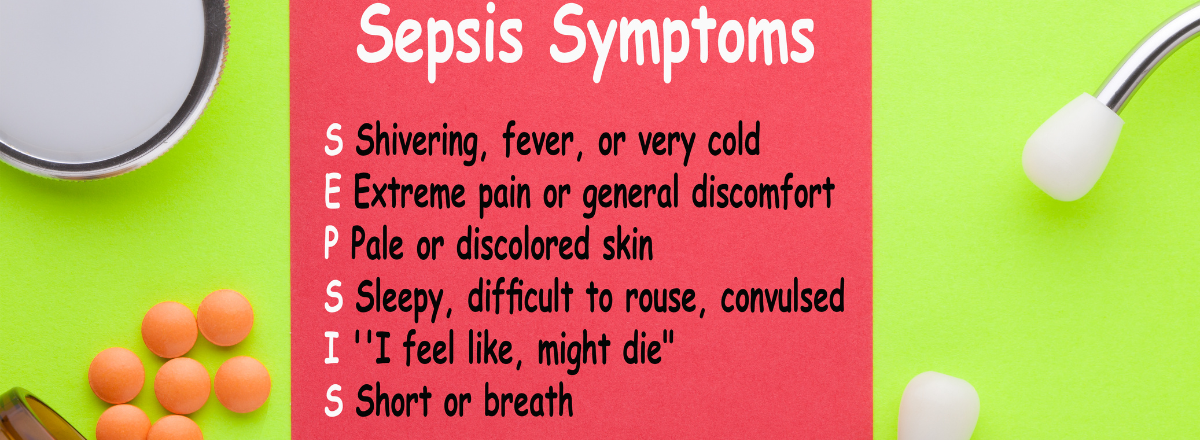At the end of March, a heartbreaking documentary showed just how serious and deadly sepsis can be. ITV’s Jason and Clara: In Memory of Maudie showed the devastating effects it had on actor Jason Watkins’ daughter. After catching a cough and being diagnosed with a croup infection, sepsis took her life at the age of just 2 years old. Jason and his wife Clara, along with the UK Sepsis Trust – a charity they’re working with – are alerting others to the dangers of what can be a deadly infection, if it isn’t caught early enough and treated. Here’s what everyone should know about sepsis …
What is sepsis?

Sepsis is a life-threatening reaction to an infection.
‘Sepsis is a life-threatening reaction to an infection’, says Dr Kenny. ‘It happens when your immune system overreacts to an infection and then starts damaging your body’s own organs.’ It isn’t contagious, so you can’t catch it from someone else or spread it, but it can be easily missed. That’s why it’s a huge concern for doctors and medical staff because although it’s treatable, at least 48,000 people lose their lives to sepsis-related illnesses every year. ‘That’s more than breast, bowel and prostate cancer combined, states the UK Sepsis Trust, adding that ‘globally, sepsis claims 11 million lives a year.’
Who can get sepsis?
Anyone with an infection can get it, which is why it’s so important to know the signs and symptoms to look for especially in groups of people who’re more prone to getting infections. These include babies and young children, elderly people and people with chronic illness or who’ve recently had a baby, surgery or chemotherapy.
Signs of sepsis to look out for
Even the NHS website warns that sepsis can be ‘hard to spot’ because symptoms can be similar to other common conditions such as flu or ear infections. ‘If your baby or young child isn’t well and deteriorates or just doesn’t seem right to you, always seek medical help,’ says Dr Kenny. ‘If they have any of these symptoms, take them straight to A&E’:
- blue, grey, pale or blotchy skin, lips or tongue – on brown or black skin, this may be easier to see on the palms of the hands or soles of the feet
- a rash that does not fade when you roll a glass over it, the same as meningitis
- difficulty breathing (you may notice grunting noises or their stomach sucking under their ribcage), breathlessness or breathing very fast
- a weak, high-pitched cry that’s not like their normal cry
- not responding like they normally do, or not interested in feeding or normal activities
- being sleepier than normal or difficult to wake.
If you’re concerned about an older child or adult who’s not well, these are the symptoms you should look out for:
- acting confused, slurred speech or not making sense
- blue, grey, pale or blotchy skin, lips or tongue – on brown or black skin, this may be easier to see on the palms of the hands or soles of the feet
- a rash that does not fade when you roll a glass over it, the same as meningitis
- difficulty breathing, breathlessness or breathing very fast
Call 999 or go to A&E if you notice any of these.
Can sepsis be treated?
Yes. Sepsis needs to be treated with special antibiotics given at hospital. The sooner you are given these, the better. ‘If sepsis isn’t caught and treated early enough, it can spread and cause life-threatening organ damage or even kill you,’ says Dr Kenny.
How to prevent sepsis
It isn’t always possible to prevent sepsis but you can reduce your chances of getting an infection by:



